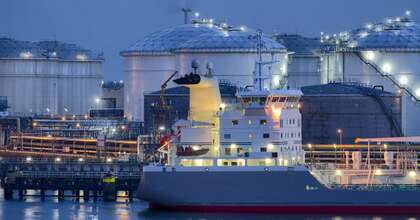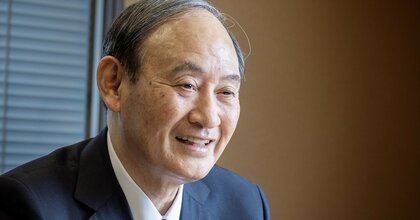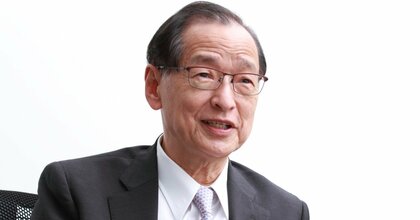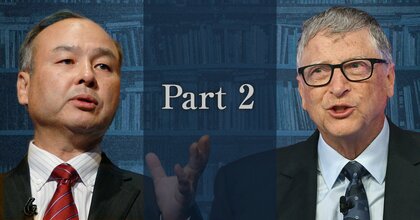The future of Russian energy
DIAMOND: What are your thoughts on the Russia-Ukraine conflict and its impact on global energy and geopolitics? When considering energy and geopolitics, what are your thoughts on the relations among the U.S., Russia, the EU and China?
YERGIN: Russia’s war in Ukraine, in its essence, represents President Vladimir Putin’s rejection of the settlement that came with the end of the Cold War. He has denied for years that Ukraine is a separate country. That is why in The New Map I focused on how Ukraine had become the focus of antagonism between Russia and the West and how it was so tied into both geopolitics and natural gas. But Putin only decided recently that circumstances were right for trying to seize Ukraine. He made many miscalculations – about the effectiveness of his army, the resistance of Ukrainians, the response of the Europeans owing to their dependence on Russian energy, and the will of the United States. The result is this brutal war. Some also think that Putin’s isolation during COVID and health issues affected his decision-making. He is surrounded by a small group of security officials who see the world the way he does.
DIAMOND: How will this affect Russia’s position in the world?
YERGIN: Putin’s great project was to project Russia as a great power. But he has weakened it. His economy will become significantly disconnected from the world economy. And Europeans will no longer regard Russia as a reliable supplier of oil, gas and coal, but rather as an unwanted supplier. Over the next couple of years, they will seek to cut their dependence on Russian energy.
DIAMOND: Will Russia still be an energy superpower?
YERGIN: Not in the way it has been in the past. Instead of being an energy superpower, Russia will become an Energy Reduced Power – still an important supplier, but no longer a desirable supplier for Europe, which has been its most important market. Russia is likely to find itself increasingly dependent on China, and the Chinese have already demonstrated that they will drive a very hard bargain.
DIAMOND: What impact will this have on global markets?
YERGIN: Russian exports have already been disrupted by self-sanctioning by companies in Europe, and now sanctions have been put in place. By early next year, Europe will have cut 80% of its oil imports from Russia. This is adding to the high prices and disruptions in global energy markets. The oil market is very tight today. Europe is drawing in as much LNG (liquefied natural gas) as it can. It is very important that governments work very closely with companies to manage the logistical challenges that are ahead. Ironically, in the short term, Russia makes more money because of high prices, but its markets will shrink.
DIAMOND: What is the role of U.S. shale oil and gas in competing with Russian energy?
YERGIN: It is very significant. In The New Map, I tell the story of how Putin started shouting at me at a conference when I mentioned the word “shale.” He saw early on that shale gas would compete with Russian gas in Europe, and that is exactly what is happening with U.S. LNG, made from shale gas, today. Without U.S. LNG, Europe’s position would be much more difficult. Europe now sees U.S. LNG as an energy security asset.
DIAMOND: What are your thoughts on relations among the U.S., Russia, the EU and China?
YERGIN: U.S. and Russian relations are totally disrupted. One worries that communications between the two major nuclear powers is even worse than it was during the Cold War. Most of the European countries are turning their backs on Russia and want to minimize relations – at least as long as Putin is in power. Russia and China will grow closer. Just before the war, the presidents of the two countries signed a document saying that there are no limits to their relations, and they just publicly reiterated that relationship. Putin and President Xi Jinping share an opposition to the rules-based international order that the United States, Japan, and Western Europe created. The decline in the Russian economy as a result of the war and sanctions and the breaking of economic relations with the West will make Russia more and more dependent on China, which will look to Russia as a source of raw materials. The war has further complicated the already complex relations between the United States and China. China says it is neutral and is looking towards a peaceful outcome, but the relationship with Russia is a critical partnership that China will want to maintain. In the back of everybody’s mind is what does this mean for the future of Taiwan.
DIAMOND: Energy prices are surging with the Russia-Ukraine conflict. OPEC+ recently reaffirmed that it would continue a limited output increase. Do you think OPEC will change after the current conflict?
YERGIN: So far, OPEC is maintaining the relationship with the non-OPEC members of OPEC+. This means that Russia and Saudi Arabia are aligned. But pressure has mounted on the OPEC countries to increase production to help compensate for reduced flows of Russian oil, as the planned trip by U.S. President Joe Biden to Saudi Arabia indicates. OPEC will have to make a choice at some point – although there is less spare capacity in the Mideast than some people think. The COVID shutdowns in China have led to a reduction in oil demand there, which has helped. Otherwise prices would be even higher. The Chinese will be studying the current sanctions very carefully.
Diversifying supplies
DIAMOND: The Russia-Ukraine conflict also has a huge impact on climate change. European countries may need to change their energy policies to ensure energy security. They may change their mix of natural gas, nuclear and fossil fuels. How do you see decarbonization progressing after the conflict?
YERGIN: Europe will move in two opposition directions at the same time. It will seek to speed up renewable electricity, to decarbonize and to reduce the amount of imported gas needed to generate electricity. But it will also seek to import much more LNG. Germany is committing to three or four new receiving terminals for LNG. We see a commitment to new nuclear power in some countries, and a regret in Germany that it shut down its nuclear power industry after Fukushima. And, short term, more coal will be burned.
DIAMOND: Japan has few energy resources. What role should Japan play amid the Russia-Ukraine conflict and in the decarbonization movement?
YERGIN: Japan has always given more attention to energy security and diversification of supply than the other industrial countries for the obvious reason that it has hardly any natural resources of its own. Japan will continue to pursue decarbonization, and it has a leading role in hydrogen. At the same time, it will seek to shore up its hydrocarbon position, which will include importing more oil and gas from the United States as well as from other parts of the world.
(This story was updated to reflect new developments after its original publication in Japanese on Apr. 14, 2022)
Daniel Yergin, vice chairman of S&P Global, is a Pulitzer Prize winning author and energy expert. His latest book, The New Map: Energy, Climate and the Clash of Nations, documents how energy revolutions are shaping geopolitics.











